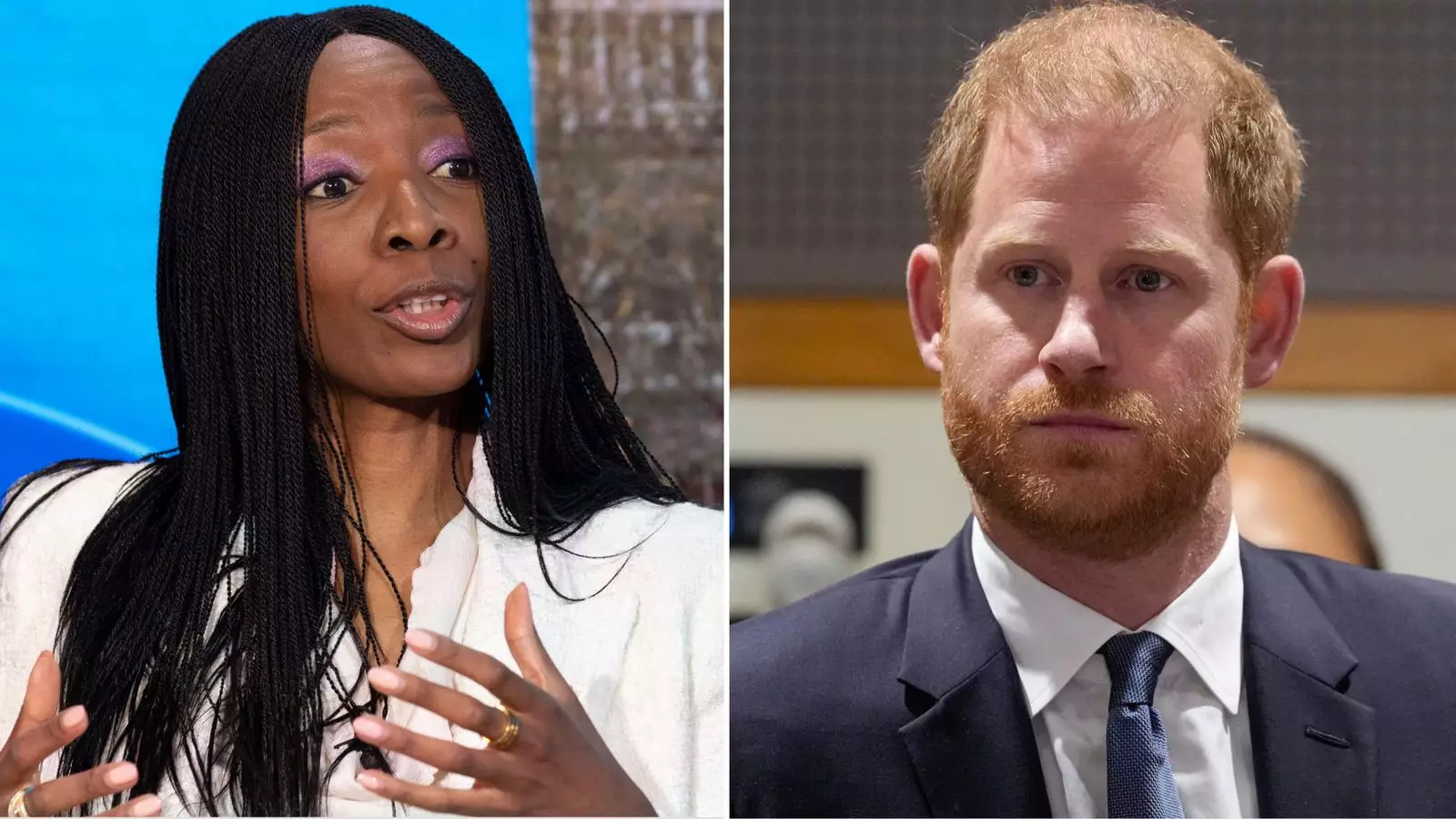The recent developments surrounding Prince Harry’s charity, Sentebale, unveil a deeply troubling narrative of miscommunication and betrayal. A rift has emerged between the charity’s chair, Dr. Sophie Chandauka, and Harry himself, marked by accusations of “harassment and bullying at scale.” This clash highlights not only internal struggles within Sentebale but also raises ethical questions surrounding leadership, communication, and the responsibilities of public figures. At the center lies Prince Harry, whose intention to support his charitable endeavors has become mired in controversy, leaving the organization’s future in jeopardy.
It is often said that effective leadership relies on transparent communication. Dr. Chandauka’s allegations reveal a critical breakdown in this area. According to her statement, Harry authorized the release of damaging news without consulting key stakeholders, causing turmoil among the charity’s members. While it may be tempting to vilify Harry, this situation deserves a more nuanced critique. What does it say about the environment fostered within organizations that prioritize charitable missions when the chaos of interpersonal relationships overshadows their altruistic goals? It is essential for leaders, especially those in the public eye, to remain accountable and aware of the ramifications of their actions.
The Motives Behind the Curtain: A Deeper Look
Interestingly, tensions within Sentebale may also emphasize the broader societal issue of governance within charities. Dr. Chandauka’s remarks concerning poor governance and abuse of power cannot be ignored as they resonate with systemic issues pervasive in many nonprofit organizations. Her assertion that those in power often play the victim while using media to further their agendas raises important questions about accountability. Are we seeing a pattern where individuals in privileged positions manipulate narratives to maintain authority?
Accusations and counter-accusations among stakeholders—especially when concerning sensitive matters like mental health and support for children afflicted by HIV—can detract from the organization’s primary mission. When members of the board turn against one another, as has seemingly occurred here, it detracts from the essential work they are meant to pursue. The charity should be a beacon of hope for the most vulnerable, and instead, it finds itself embroiled in drama that could potentially undermine its credibility and purpose.
The Power of Perception: Media Dynamics at Play
Adding another layer of complexity to this situation is the role of media narratives. According to insiders, the claim that Harry “unleashed the Sussex machine” implies that he is using his influence for personal defense. Such perspectives fuel a press narrative that can warp public perception of complex issues. In this context, it is crucial to consider how public relations tactics often overshadow genuine concerns. Dr. Chandauka’s claims of bullying and harassment challenge us to see beyond the tabloids and appreciate the emotional toll such conflicts incur.
Moreover, media scrutiny can exacerbate the issue, drawing attention away from Sentebale’s mission and creating an environment of distrust among stakeholders. The focus shifts from impactful charity work to sensationalist storylines, reducing real people’s struggles to mere headlines. Is this what we want for organizations pledging to aid those in need? This situation serves as a reminder of the need for charities to cultivate a healthy internal structure, devoid of public drama, to maintain the integrity of their mission.
Reflections on Leadership: The Need for Constructive Dialogue
As we parse through this debacle, it becomes evident that effective leadership must include healthy dialogues about governance, transparency, and respect. Both Prince Harry and Dr. Chandauka have valid perspectives, but if they are to navigate this crisis effectively, they must come together for constructive negotiations rather than allowing the narrative to spiral further out of control. Sentebale’s mission to assist children in southern Africa is far too vital to fall victim to bureaucratic infighting.
In our contemporary climate, the complexities facing charitable organizations demand leaders who can transcend personal disputes and prioritize impact. It will require both parties to address these grievances openly and work towards a unified vision. This moment could either signify the decline of an organization with enormous potential or a pivotal opportunity for reform and renewal, steering the charity back to its foundational purpose: helping those who need it most.


Leave a Reply